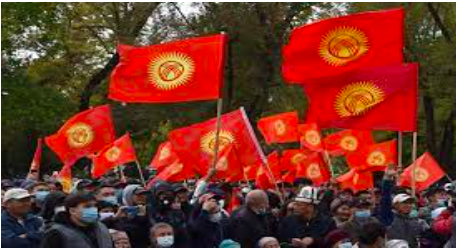Kurdistan
Posted on : October 14, 2019Author : AGA Admin

Kurdistan (“Land of the Kurds”), Arabic Kurdistān and Persian Kordestān, refers to an area of Kurdish settlement that roughly includes the mountain systems of the Zagros and the eastern extension of the Taurus. It consists of an extensive plateau and mountain area, spread over large parts of what are now eastern Turkey, northern Iraq and western Iran and smaller parts of northern Syria and Armenia. Since ancient times the area has been the home of the Kurds, a people whose ethnic origins are uncertain. For 600 years after the Arab conquest and their conversion to Islam, the Kurds played a prominent role in the troubled history of western Asia—but as tribes, individuals, or turbulent groups rather than as a people.Among the petty Kurdish dynasties that arose during this period the most important were the Shaddādids, who ruled over a predominantly Armenian population in the Ānī and Ganja districts of Transcaucasia (c. 951–1174); the Marwānids of Diyarbakir (c. 990–1096); the Ḥasanwayhids of the Kermānshāh region (c. 961–1015); and the ʿAnnazids (c. 990/91–1117). Several Kurdish principalities developed and survived into the first half of the 19th century, notably those of Bohtān, Hakari, Bahdinan, Soran, and Baban in Turkey and of Mukriand Ardelan in Persia. But Kurdistan, though it played a considerable part in the history of western Asia, never enjoyed political unity.With the dissolution of the Ottoman Empire after World War I (1914–18), and particularly with the encouragement of U.S. President Woodrow Wilson—one of whose Fourteen Points stipulated that the Kurdish nationalists looked to the eventual establishment of a Kurdistani state.The Treaty of Sèvres, signed in 1920 by representatives of the Allies and of the Ottoman sultan, provided for the recognition of the three Arab states of Hejaz, Syria, and Iraq and of Armenia and, to the south of it, Kurdistan, which the Kurds of the Mosul vilāyet (province), then under British occupation, would have the right to join. However owing to the military revival of Turkey under Kemal Atatürk, this treaty was never ratified. It was superseded in 1923 by the Treaty of Lausanne, which confirmed the provision for the Arab states but omitted mention of Armenia and Kurdistan. Dreams of a united Kurdistan thus remained unfulfilled.




